
Inter Alia organized “Creative Climate Praxis and Justice,” an event dedicated to the topic of sustainable fashion. The event brought together individuals who are curious about the social and ecological impact of the fashion industry. Together, we explored how prevailing perceptions of sustainability affect environmental policy-making and delved into alternatives for a more sustainable world that is intricately linked to social justice.
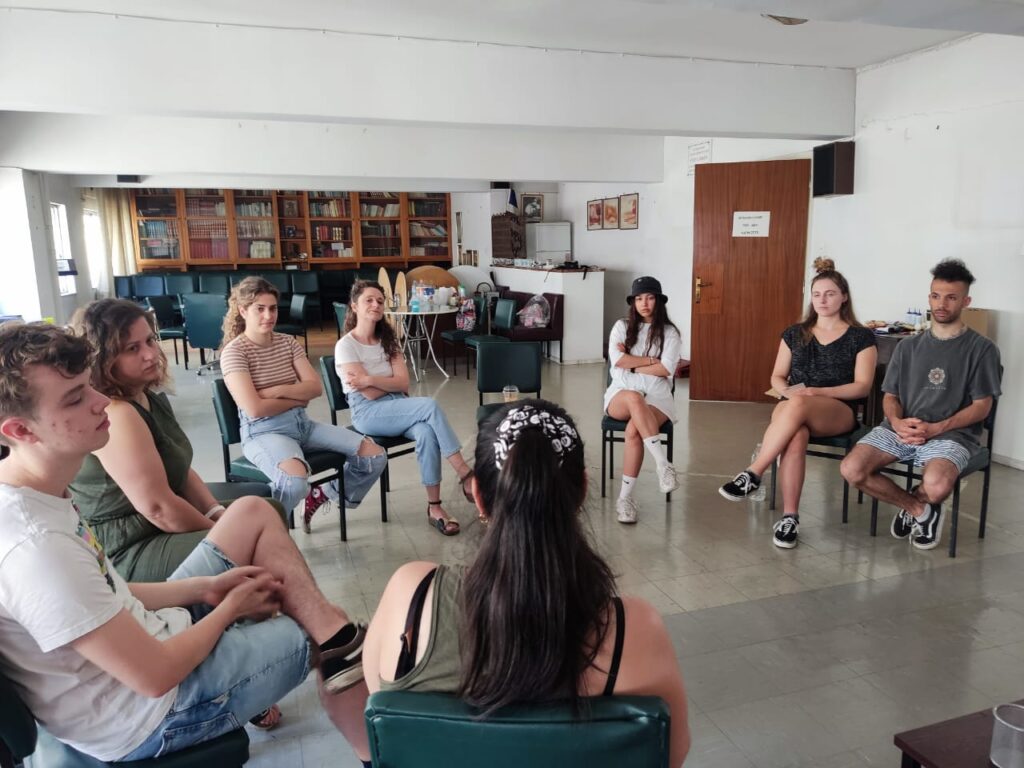
We used a two-level approach where participants engaged with mainstream approaches to sustainability and sustainable fashion, such as technological innovations and eco-modernity. Through a reflective, playful, and creative process, we also challenged the dominant assumptions of what constitutes “sustainable” and “just.”
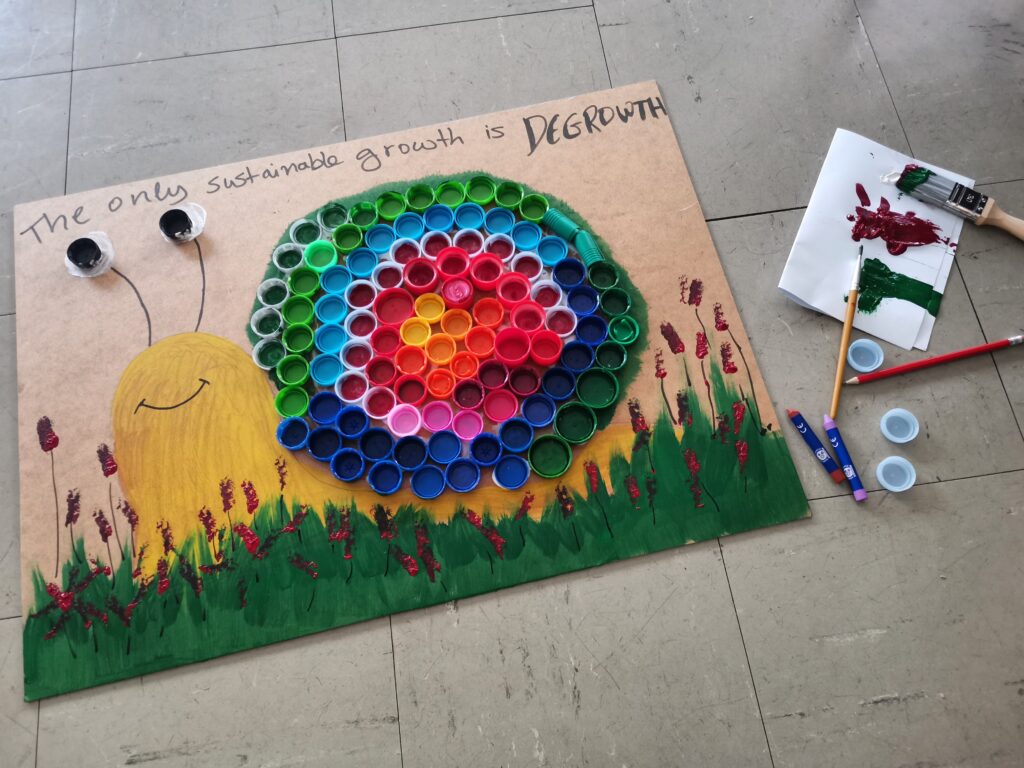
Next, we unleashed our creativity through collaborative artwork, bridging reflection with action. Utilizing various materials, including old newspapers, magazines, flyers, leftover clothes from last year’s winter clothing swap, bottle caps, and other crafting materials, we transformed them into creative pieces that reflected our voices for a sustainable and just future.

The essence of the event lies in the idea of connecting individual aspirations and visions with collective interventions for change and future representations.
One of our main activities was centered around sustainable entrepreneurship, which raised critical questions about community participation and the role of market-based solutions. Our colleague Revekka introduced the hackathon approach to advocate for the inclusivity of diverse opinions and the utilization of collective knowledge in identifying solutions to complex socio-ecological and technical problems.
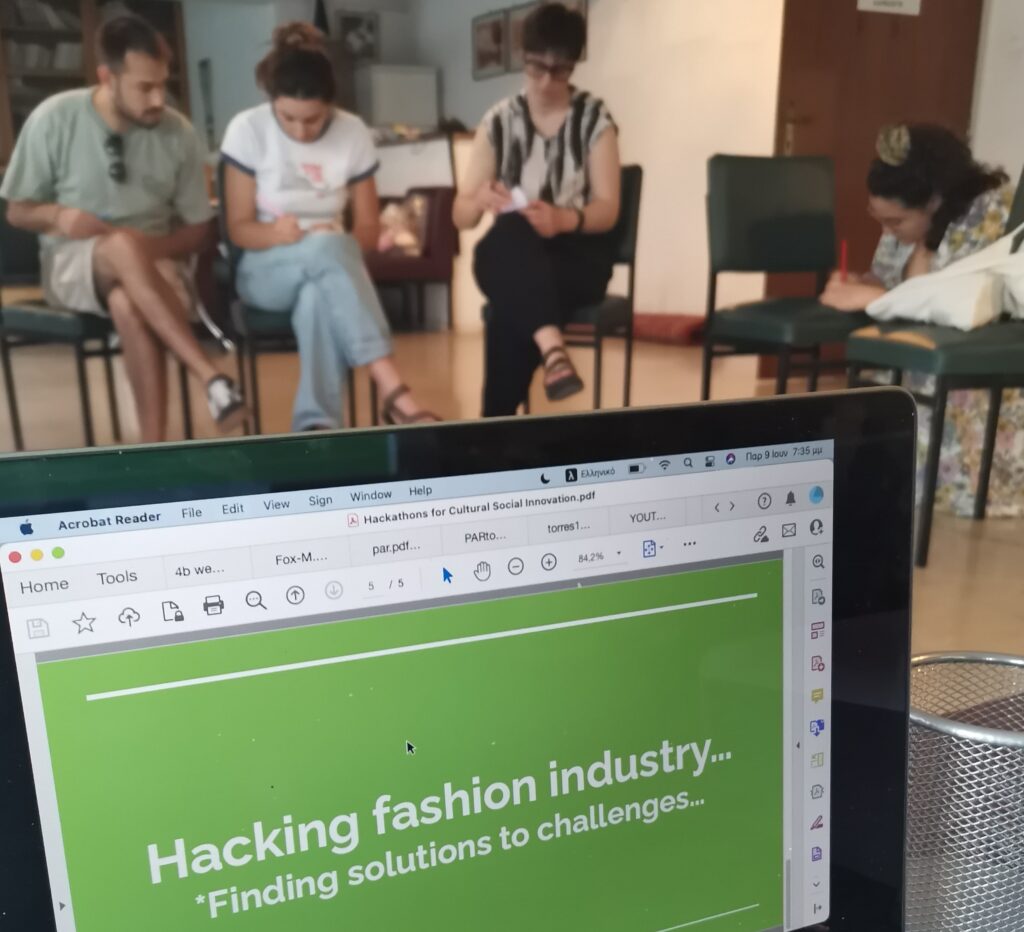
Furthermore, our colleague Amerissa emphasized the need to introduce more participatory approaches in decision-making processes. Simultaneously, she acknowledged the underlying conflicts and unequal hierarchical structures.
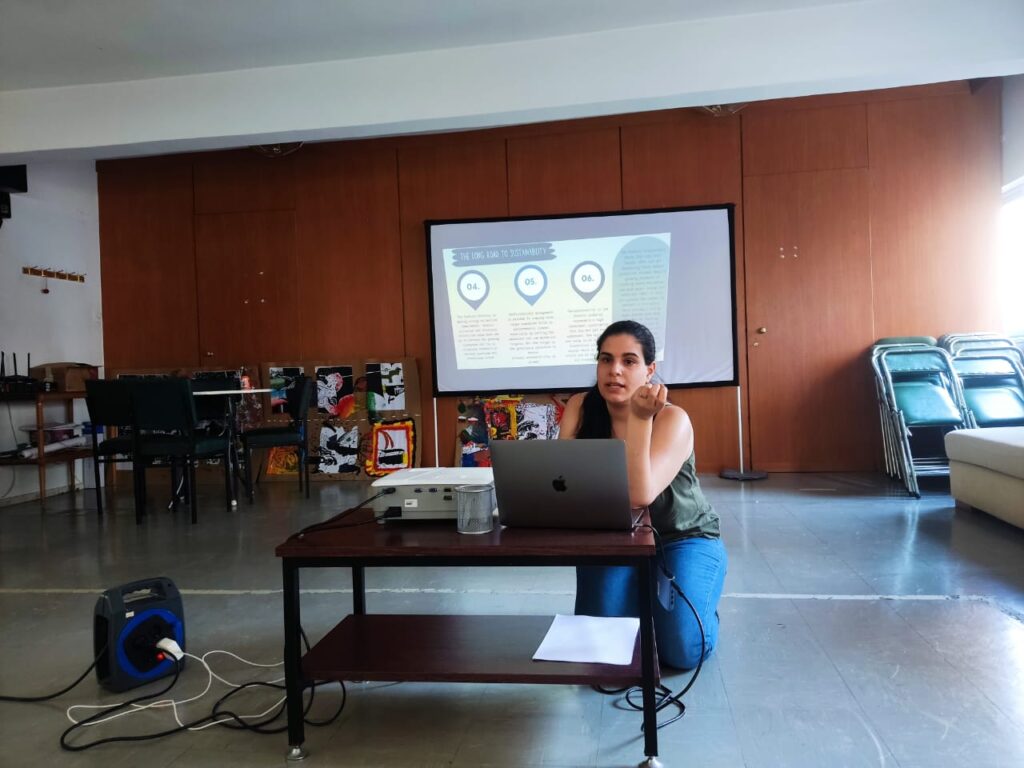
Another crucial aspect of the event was experimentation. It is quite common for individuals to feel uncomfortable and uncertain when asked to engage in creative activities such as drawing. However, our message was that it’s perfectly fine not to be perfect and that taking the initiative is necessary to initiate change. Participants embraced this concept, which eventually empowered them and left them satisfied with both the process and the outcomes.
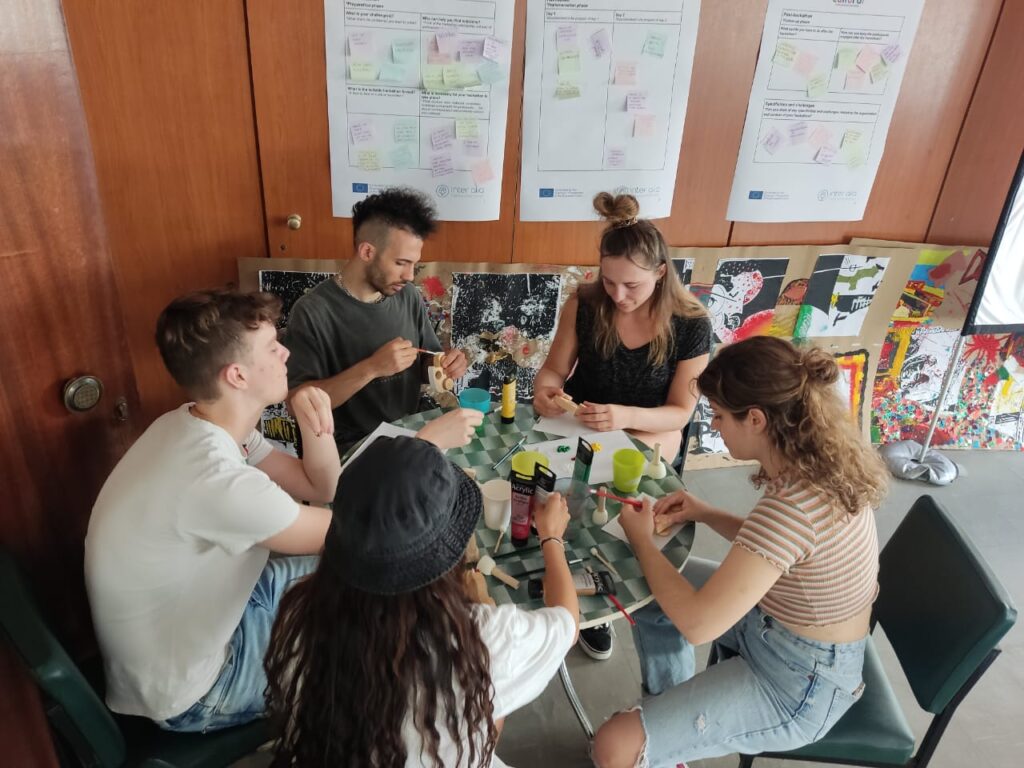
Lastly, and perhaps most importantly, the event fostered bonding, trust-building, and community development through learning and communication approaches that try to challenge hierarchical divisions and privileged positions between participants and facilitators. We emphasized the need for self and collective reflection within the organization regarding our privileges and biases, as they can influence our judgments and interactions with the world around us, both human and non-human.





